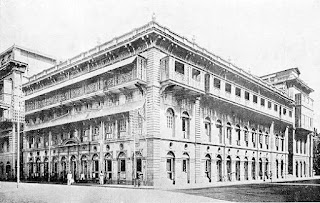The most significant world events that took palce on 10 July are highlighted below:
1. International Town Criers Day:
This day is celebrated as International Town Criers Day in different part of the world. International Town Criers Day has been celebrated for more than 25 years, since its founding in 1997. Scott Fraser, who had been a town crier in Waterloo, Ontario, in the 1980s, established the day to draw attention and recognition to the importance of this role. Since then, the day has been celebrated every year on a Monday in early July, encouraging folks all over the world to show appreciation for this important part of folklorea and to demonstrate its historical importance and the important role the Criers played in the Monarchy Kingdom. Sometimes referred to as bellmen due to their ringing of a bell, town criers were thought to have arisen in Britain in medieval times, as early as the 11th century, when men were employed to call out proclamations on the authority of the king. Continuing on for several centuries, they were often seen in England and also in North America during the early days of the colonies in the 1700s.
In olden times, when few people were literate, and there was little access to printed media, town criers were a central part of urban living and played a very important role. Town criers were responsible for keeping the populace up to date with the latest news and events, and for disseminating news from the ruling classes to the wider populace. Ability to read, having a loud voice, and being able to draw the attention of a crowd were necessary qualification for those who aspired to take on the role of town crier in the past. Because they sometimes brought bad news, such as tax increases or unpopular new laws, the town criers were legally protected and any harm done to them was considered to be treason.
The world’s tallest town crier is located in Shrewsbury, Shropshire, England standing at 7 feet 2 inches tall. Martin Woods started as the town crier in 1984 and continued on in the role for more than 35 years.
The world record for the loudest town crier is held by Alan Myatt who is crier for the City of Gloucester, London’s Covent Garden and other places in England. His cry rings out at 112.8 decibels and was recorded in the Guinness Book of World Records two times.
2. NASA launched Telstar 1, the World’s First Active Communications Satellite:
The Telestar 1 was succesfully launched on 10 July 1962 on a top of a Thor Delta Rocket was from Cape Canaveral, Florida, the U.S. as the first commercial payload in space. Telstar 1 was developed and operated jointly by NASA and AT&T. While it wasn't the first communications satellite ever launched, it was the first to amplify signals in space before sending them back to earth. This made it the first satellite to transmit TV signals between Europe and the United States,across the Atlantic Oceans, inagurating a new age in electronic communication.
3. Aviator Howard Hughes started his around-the-world flight:
Howard Robard Hughes, Jr. (December 24, 1905 – April 5, 1976) Hughes was an innovative American businessman, movie producer, aircraft inventor, mine owner and casino owner who became infamous in the final years of his life, when he lived as an eccentric recluse.
He gained fame as a record-setting pilot, flying around the world in 1938 in just over 91 hours. However, Hughes's most famous aviation endeavor was building the largest airplane ever made, the Spruce Goose, a giant, eight-engined, flying boat made of wood that flew only once, in 1947. On July 10, 1938 Hughes set another record by completing a flight around the world in just 91 hours (3 days, 19 hours), beating the previous record by more than four days. For this flight he did not fly a plane of his own design but a Lockheed Super Electra (a twin-engine plane with a four-man crew) fitted with all of the latest radio and navigational equipment. Hughes wanted the flight to be a triumph of technology, illustrating that safe, long-distance air travel was possible.
Hughes received many awards as an aviator, including the Harmon Trophy in 1936 and 1938, the Collier Trophy in 1938, the Octave Chanute Award in 1940, and a special Congressional Gold Medal in 1939 "… in recognition of the achievements of Howard Hughes in advancing the science of aviation and thus bringing great credit to his country throughout the world."
4. In support of the American Revolution, Louis XVI declared war on England in 1778.
John Calvin (l. 1509-1564) was a French Reformer, pastor, and theologian considered among the greatest of the Protestant Reformation along with Martin Luther (l. 1483-1546) and Huldrych Zwingli (l. 1484-1531). Calvin synthesized the differing views of Protestant sects with his own in his Institutes of the Christian Religion, regarded as one of the most important works of Protestant theology.








.jpg)
























